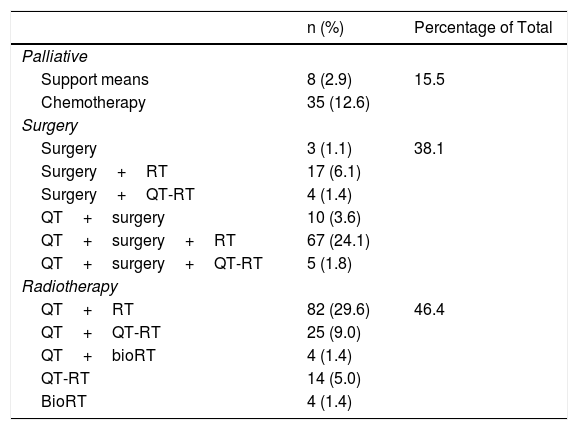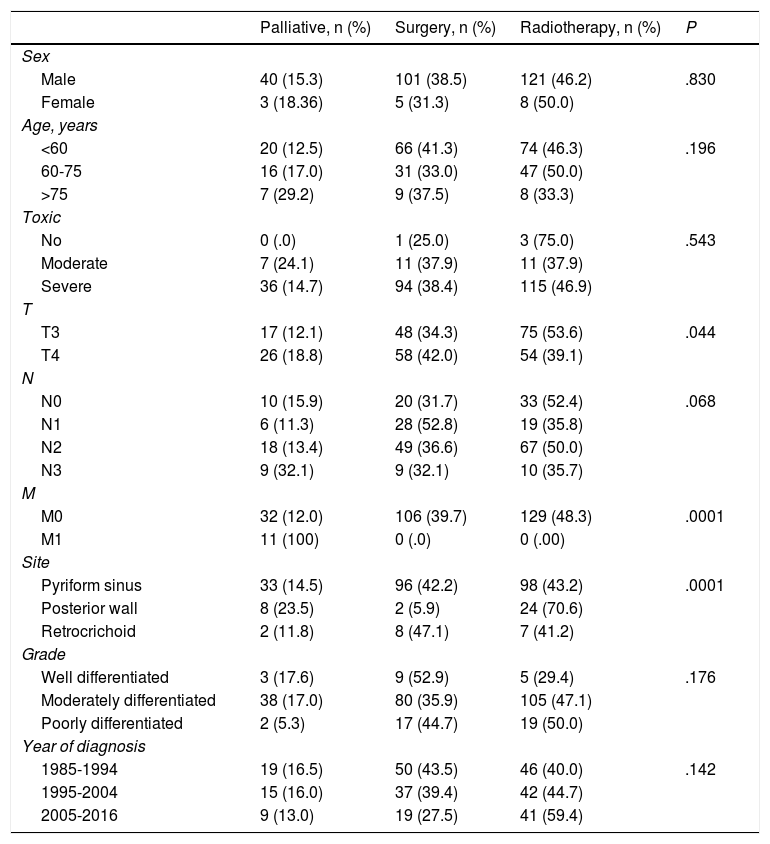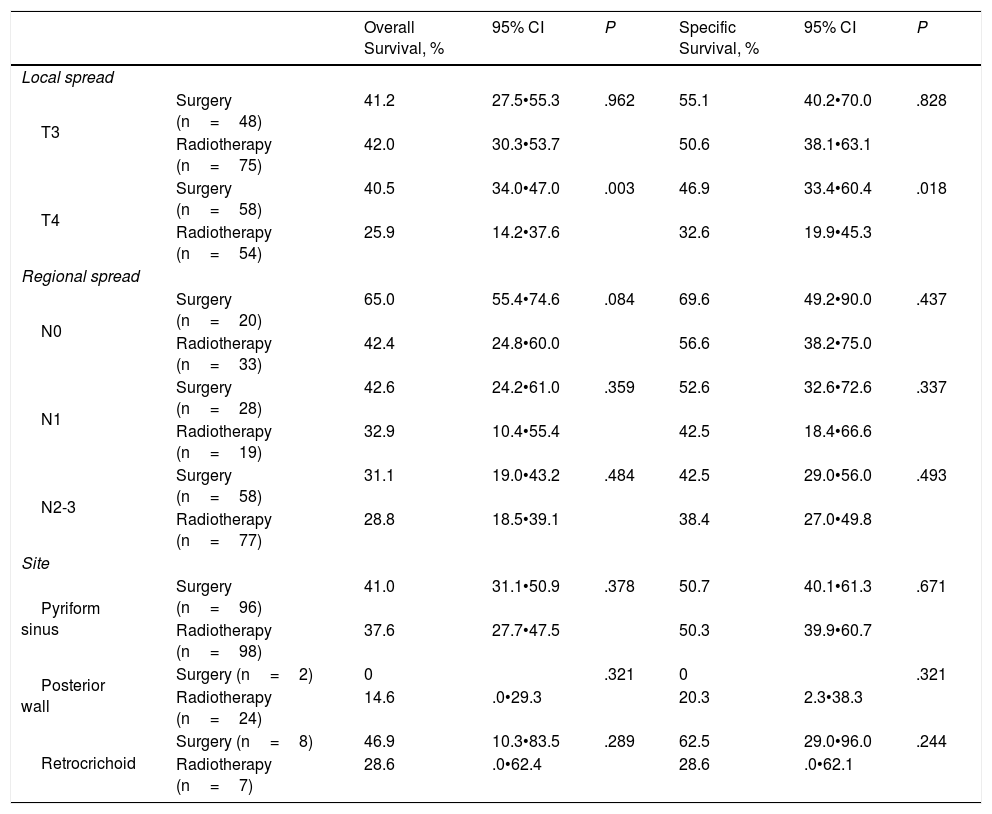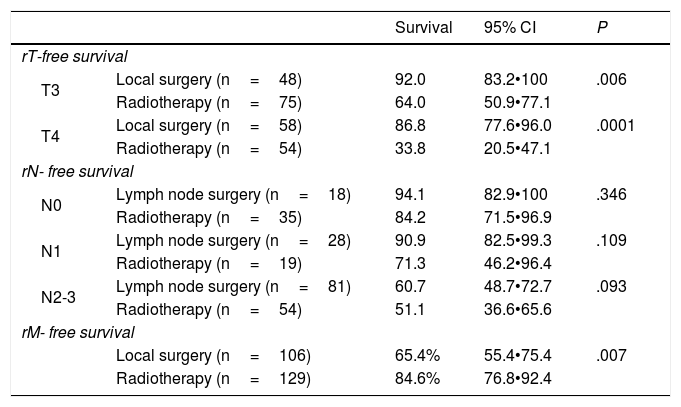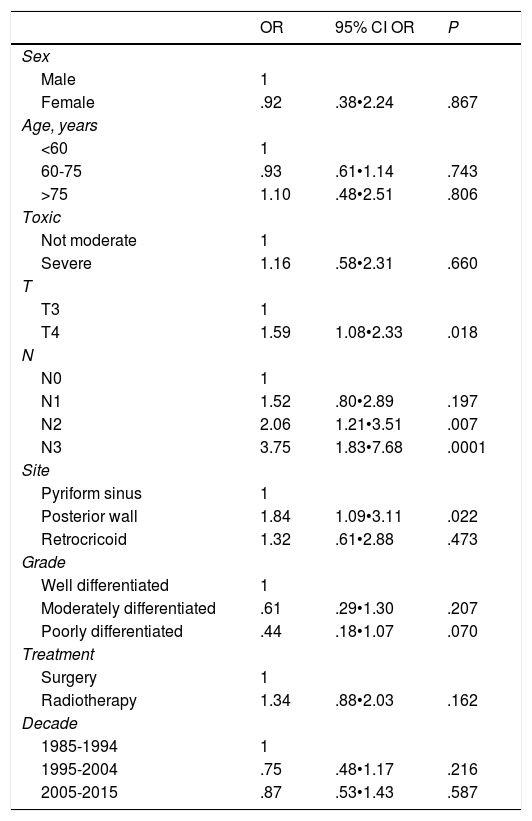The treatment of locally advanced carcinomas of the hypopharynx may include surgery or several combinations of radiotherapy and chemotherapy as organ preservation strategies. The objective of the present study is to analyze the results of locally advanced hypopharyngeal carcinoma patients treated in a single centre over a 30-year period.
MethodsRetrospective chart review of 278 patients with T3-T4 hypopharyngeal carcinomas treated between 1985 and 2015 at a tertiary institution.
ResultsAs much as 15.5% of the patients received only palliative treatment. Surgery, usually followed by radiotherapy or chemoradiotherapy was offered to 38.1% of the patients, and radiotherapy or chemoradiotherapy alone was offered to the remaining 46.6% of the patients. Cause-specific survival at 5 years was 39.7% (95% CI: 33.7•45.7%) for the whole sample. Surgery achieved better local control of the disease, but these figures did not translate into an increase of cause-specific survival for T3 tumours. Five-year survival free of laryngeal dysfunction for patients who received conservative treatment was 36.4%. In a multivariate analysis, only T4 local extension, N2•3 category, and posterior hypopharyngeal wall location related significantly with cause-specific survival.
ConclusionThere were no significant differences in cause-specific survival related to treatment modality for T3 carcinomas. On the other hand, surgery achieved a significant increase in cause-specific survival for T4 hypopharyngeal carcinomas.
El tratamiento de los pacientes con carcinoma de hipofaringe localmente avanzado incluye la cirugía o combinaciones de radioterapia y quimioterapia realizadas en el contexto de protocolos de preservación de órgano. El objetivo del presente estudio es analizar los resultados obtenidos en pacientes con tumores localmente avanzados de hipofaringe tratados en un centro a lo largo de un periodo de 30 años.
Mèc)todosEstudio retrospectivo de 278 pacientes con tumores de hipofaringe T3-T4 tratados durante el periodo 1985•2015 en un hospital terciario.
ResultadosUn 15,5% de los pacientes recibieron tratamiento paliativo, un 38,1% cirugía, habitualmente con radioterapia o quimio-radioterapia postoperatoria, y un 46,4% radioterapia o quimio-radioterapia. La supervivencia específica a los 5 años fue del 39,7% (IC 95%: 33,7-45,7%). La cirugía consiguió un mejor control local de la enfermedad, si bien este mejor control local no se vio reflejado en una mejoría en la supervivencia específica para los pacientes con tumores T3. La supervivencia a los 5 años libre de disfunción laríngea para los pacientes tratados de forma conservadora fue del 36,4%. De acuerdo con los resultados de un análisis multivariante, las variables que se relacionaron con un empeoramiento de la supervivencia específica fueron la categoría de extensión local T4, de extensión regional N2-N3, y la localización del tumor en la pared posterior de la hipofaringe.
ConclusionesNo aparecieron diferencias significativas en función del tipo de tratamiento para los pacientes con tumores de hipofaringe T3. Para los pacientes con tumores T4 la cirugía consiguió un incremento significativo en la supervivencia.








